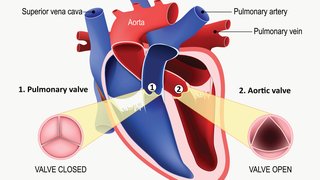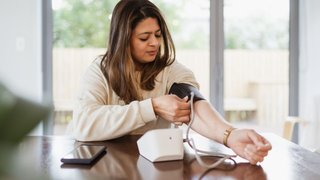-
The advantage a good cardiologist offers is in getting to know the patient – their fears and concerns – and then taking that information and translating it into a treatment recommendation. For instance, a patient may fear having a stent put in because the procedure carries risk. But a stent may be far less risky than doing nothing or more effective than treating the problem with medication. I make sure patients know why I’m recommending a treatment and give them an understanding of the risks. My job is not to convince patients to adopt one form of treatment over another; it’s to educate them about their choices and help them make the one that’s best for them.
-
Maintaining a good body weight and getting adequate exercise go a long way in preventing cardiovascular disease. A minority of patients will still need medication or invasive therapy no matter what they do because of their genes, but a tremendous amount of cardiovascular disease can be prevented by watching what you eat and staying active. Among a host of other benefits, exercise has been shown to decrease the cardiovascular effects of aging.
-
Onco-cardiology is a relatively new area of medicine that treats the unintended effects of cancer therapy on the heart and vascular system. It also includes the care of patients who have pre-existing cardiac problems and now are undergoing cancer treatment with surgery, chemotherapy, or radiation therapy. There are several cancer drugs that we’ve known for some time can be harmful to the heart, a condition known as cardiotoxicity. In the last decade, a host of newer drugs have been developed that target specific cellular pathways important to the cancer cells but sometimes also have deleterious effects on the cardiovascular system. We’re interested in finding out how to predict who might be at risk for cardiotoxicity, how to prevent it, if possible, and how to best treat it when it occurs.

Dr. Andrews, a board-certified cardiologist, leads the cardiology team at UT Southwestern Clinical Center – Park Cities. He sees patients with all types of general cardiology issues as well as patients with cancer-related cardiology problems. To schedule an appointment with Dr. Andrews, call 214-645-8300.










